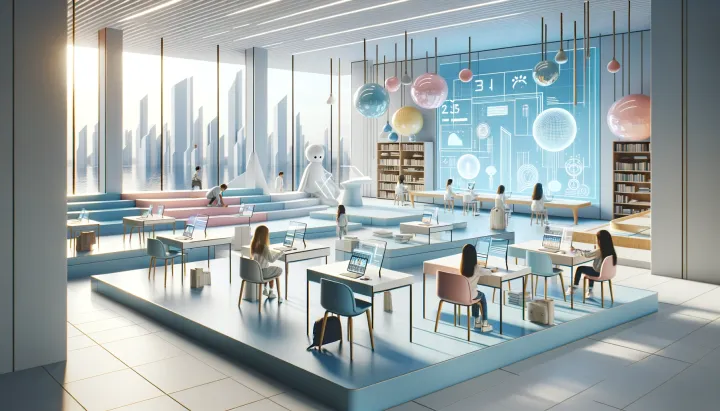Iron and Steel

Teaching is a wonderful profession. In addition to ‘in class’ knowledge dissemination, teaching encompasses a lot of activities. In any traditional B School (basically a finishing school programme spanning the breadth of the Pacific Ocean), this typically encompasses the set of all activities such as instructing students on proper dressing, grammar, and how to make a powerpoint presentation etc. These are things that I enjoy doing.
The shift from online to offline mode was something I was looking forward to. After 3 months of online teaching, yesterday was the first time students of our MBA batch came to class in person. The occasion – CV building workshop. The placement chair, in all his wisdom, had entrusted me to organize a workshop to help students prepare their CVs. For the uninitiated, this is a really big thing in any Indian B School. I took this up as a challenge and prepared a slide deck that had both substance and jokes. I was nervous when I stood in front of class for the first time ever as a faculty member. One of my friendly colleagues gestured that I start with a round of introductions. Given the merit of her suggestion, I immediately got the students to start a round of introductions. It was a fun exercise. There were many funny stories, and many interesting hobbies that I wanted to probe into in greater detail. My curiosity would have to hold on for some more time at least. It was then that the most wonderful thing happened. One of our students, Rohan, got up and introduced himself.
“Sir, I am Rohan. Rohan Bhalla. I have experience in the Iron and Steel industry. We own a plant. I want to major in marketing.”
Excited to have a more detailed conversation with him, I probed him a little.
“Hi Rohan. Competing with the Tatas are we?”
There was a round of chuckles. The momentum of providing choreographed intros like a chain gun was not going to wait for me. The next student had gotten up, and I had to give up. I would have to wait for some more time.
After a detailed presentation on placement processes and what we planned to do later in the month, we got every student to begin filling out their respective CVs. Several of my faculty colleagues had graciously volunteered their time to help with overseeing the CV writing process and suggest edits and improvements wherever applicable. Like the others, I too went around from one student to another, looking into their monitor screens, making changes to their CVs the way I saw them fit, making a few typos thanks to the standardised keyboard structure laptop manufacturers agreed not to use. It was then that I got to see Rohan’s full CV.
Under work experience, Rohan had written- “Bhalla Iron and Steel”. I had noticed that his last name and the firm that he worked for were both ‘Bhalla’. Wanting to sound friendly, I tried to piece together some Hindi and asked him “ Baap ke Company hai kya?”.
He nodded yes.
“So you were unpaid help?”
“Yes”, came the reply.
“For how long?”
“Last year sir. Almost one year” he said.
“So what did your father have you do at the office?”
“I manage the people sir. And the processes”
By this time, my curiosity had resurfaced. I asked him, “So what type of steel plant do you have?”.
I was expecting him to give me a detailed answer this time, and wished to prod him about where they get the ore from and what type of furnace they used. These were, in many ways, the learnings from B School for faculty. We hear real stories from real people. Unlike TED talks and other conferences, it is moments like these that allow us to dig into the meat of the stories. Eagerly waiting for a reply, I found Rohan shaking his head no.
“I’m not sure sir”.
“Do you get lorries of rocks from Odisha that get heated up in your factory?” I asked, surprised with his lack of knowledge on the subject.
“I’m not sure sir”, came the reply.
“Do you have a furnace that heats things up to molten stage?”, I enquired.
“Not sure sir. It’s my father’s factory. I do what I am told.” He said.
While I was disappointed in the kid for not knowing what his father was doing to put him through school, I poked him a little.
“So basically slave labour?”, I said, smiling at him.
“Sort of sir”, he smiled back.
Allowing my curiosity to get the better of me, I said “Ok. Let’s do something. You pick up your phone and ask your father two things. One, what is the industry we are in? And two, what type of furnace do we have?” I was half expecting him not to take me up on my offer. The kid on the other hand wanted to know too. He immediately picked up his shiny new phone and called his ‘papa’.
He whispered into the phone, “Pa. I am in the CV workshop. I was speaking to my professor and he asked me, what factory we have. So I called you”.
“After a few seconds of silent listening, he said, “Papa. we will discuss that once I come home, but tell me, what factory do we have and what type of furnace do we use?”.
A few seconds later, “Ok Papa. Bye. Will come home and explain in detail”.
I enquired, “So what did your dad tell you over the phone?”
He said, “what were you doing in the factory all these months?”.
Rohan then told me what his father did. Turns out, they were into a specialised function called drawing. Apparently, steel pipes are made in really large sizes and later cut and recast into tubes of smaller diameters. And it was in this industry that Mr. Bhalla (the senior) was in.
I am sure that the father and son were going to have a heart to heart conversation later that night. I told Rohan that this is something his father was building for him to inherit at some point, and that he should learn more about it and understand how his management lessons could be applied in his factory. Rohan nodded yes. I made some more changes to his CV and moved on to the next.
P.S. When I told this story to one of my other colleagues, Prof. Pattvardhan, he smiled and said “I am really happy with the father’s response.”
P.P.S. I have shown the story to the student and taken his permission before posting it here.



